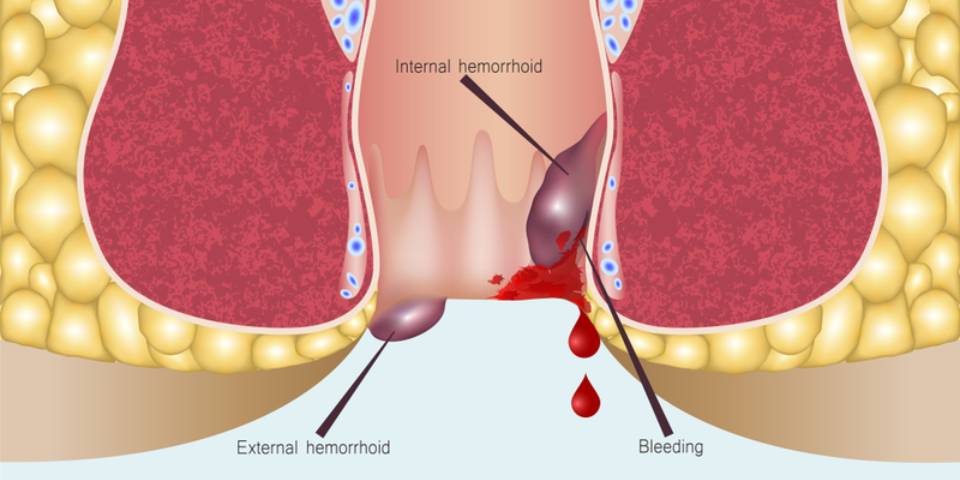- 21/04/2023
- by Dr. Pinak Dasgupta
- Blog
Anorectal bleeding refers to bleeding that occurs in the anus or rectum, often associated with conditions such as hemorrhoids, anal fissures, or colorectal cancer. While it can be alarming, it is crucial not to ignore anorectal bleeding and seek timely medical attention. Dr. Pinak Dasgupta, a highly skilled surgeon specializing in colorectal surgery and proctology, emphasizes the importance of addressing anorectal bleeding and provides expert guidance for patients.
Understanding Anorectal Bleeding:
Anorectal bleeding can manifest in various ways, including blood in the stool, bright red blood on the toilet paper, or blood in the toilet bowl after a bowel movement. It may be accompanied by pain, itching, or discomfort in the anal area. Dr. Dasgupta highlights that anorectal bleeding should never be disregarded, as it can be an indication of an underlying condition that requires medical attention.
Common Causes of Anorectal Bleeding:
- Hemorrhoids: Swollen blood vessels in the rectum or anus, known as hemorrhoids, are a common cause of anorectal bleeding. They can be internal or external and may result from straining during bowel movements, pregnancy, or chronic constipation.
- Anal Fissures: Small tears or cracks in the lining of the anus, called anal fissures, can lead to bleeding during or after bowel movements. They often occur due to constipation, excessive straining, or trauma to the anal area.
- Colorectal Polyps: These are abnormal growths in the colon or rectum that may cause bleeding. While most polyps are benign, some can develop into colorectal cancer over time. Prompt detection and removal of polyps are essential to prevent the progression to cancer.
- Inflammatory Bowel Disease (IBD): Conditions such as ulcerative colitis and Crohn’s disease can cause inflammation and ulcers in the digestive tract, leading to anorectal bleeding.
- Colorectal Cancer: Anorectal bleeding can be a symptom of colorectal cancer, especially if it persists or is accompanied by other concerning signs such as changes in bowel habits, unexplained weight loss, or abdominal pain.
The Importance of Seeking Medical Attention:
Dr. Pinak Dasgupta stresses the significance of not ignoring anorectal bleeding. While some cases may be benign and resolve on their own, others may require medical intervention. Timely evaluation by a healthcare professional, such as Dr. Dasgupta, can help determine the underlying cause and initiate appropriate treatment. Ignoring anorectal bleeding can lead to complications and delay the diagnosis of potentially serious conditions.
Expert Guidance from Dr. Pinak Dasgupta:
- Comprehensive Evaluation: Dr. Dasgupta conducts a thorough evaluation of patients experiencing anorectal bleeding, taking into account their medical history, symptoms, and physical examination. He may recommend additional tests, such as a colonoscopy or flexible sigmoidoscopy, to identify the cause of the bleeding accurately.
- Personalized Treatment Plans: Once the underlying cause is determined, Dr. Dasgupta develops personalized treatment plans tailored to each patient’s needs. These may include conservative management, lifestyle modifications, medication, minimally invasive procedures, or surgical interventions, depending on the diagnosis.
- Patient Education and Support: Dr. Dasgupta prioritizes patient education, ensuring individuals understand their condition, treatment options, and the importance of follow-up care. He provides ongoing support, addressing any concerns and guiding patients towards optimal recovery.
Conclusion:
Anorectal bleeding is a symptom that should never be ignored. By consulting a highly skilled surgeon like Dr. Pinak Dasgupta, patients can receive the expert care and treatment needed to address the underlying causes of anorectal bleeding. Dr. Dasgupta’s expertise in colorectal surgery and proctology, coupled with his commitment to patient education and support, ensures that individuals receive the best possible care for their condition. Don’t underestimate the importance of seeking medical attention for anorectal bleeding—trust Dr. Pinak Dasgupta to guide you towards a proper diagnosis and effective treatment for a healthier future.



